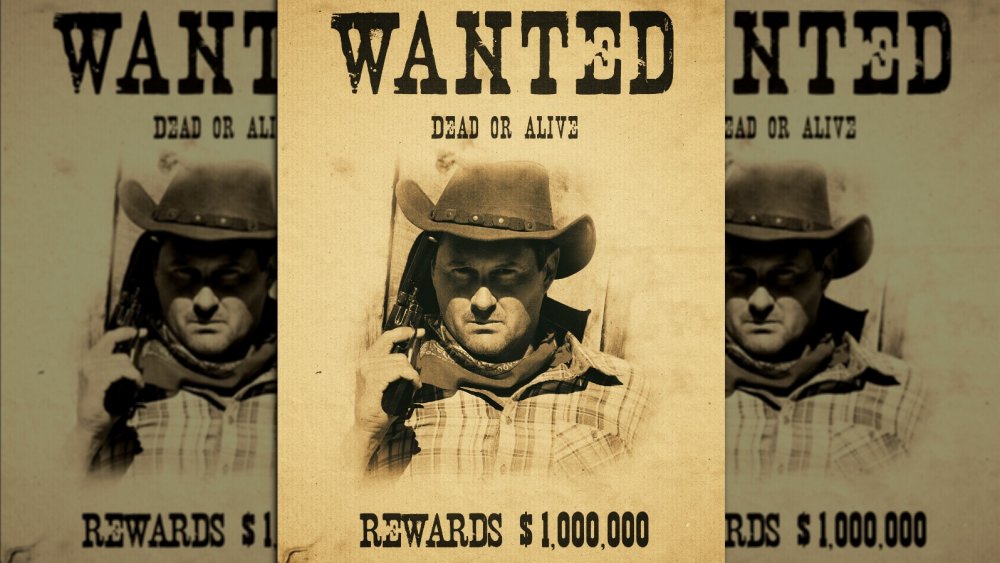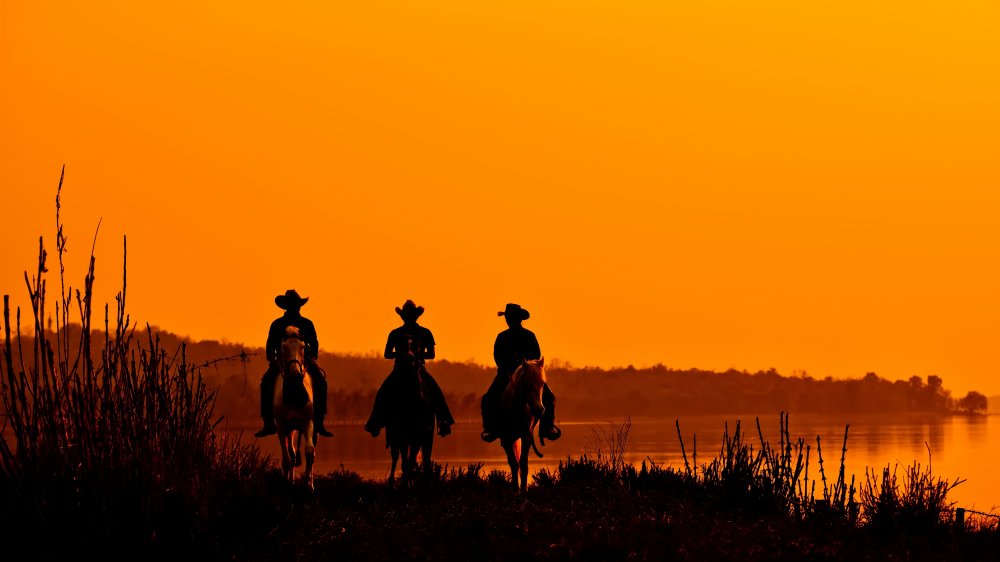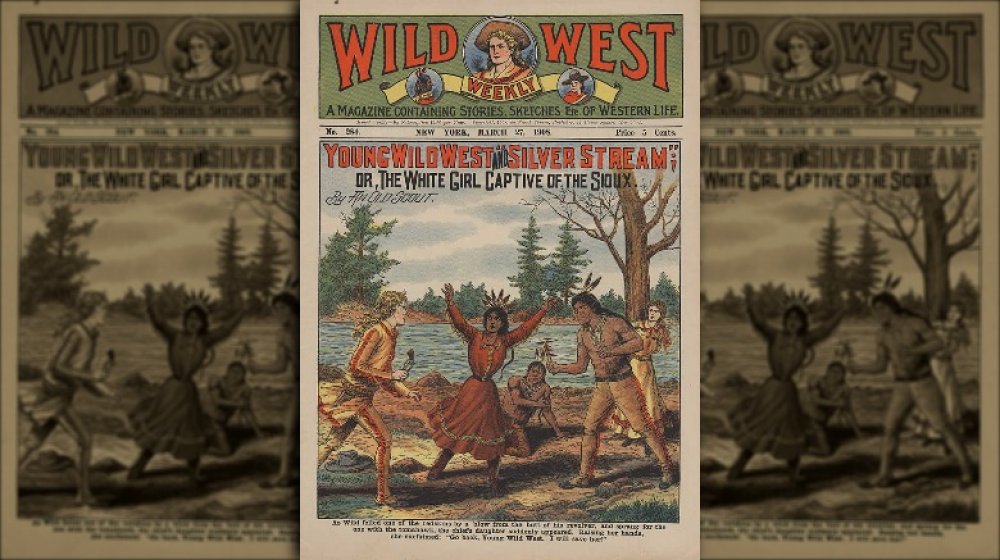The Truth About Old West Bounty Hunters
It's a trope common to spaghetti westerns and our idea of United States history in general: the classic wanted sign, its edged singed with days of the burning desert sun. "Wanted: Dead or Alive" printed beneath the portrait of a mangy stagecoach robber with a bushy mustache and beady, piercing eyes. These and the bounty hunters they imply must have been plastered all over bulletin boards in the Old West, right?
Well, kinda. But the reality of the situation isn't what the movies would have you think. According to True West magazine's Marshall Trimble, the lone bounty hunter despised by outlaws, lawmen, and citizens alike for making a living off hunting down fugitives isn't really historically accurate. Fugitives and the "bounties" (we'll get into that in a minute) on their heads were more often wrangled by public peace officers, private detective agencies, or companies like Wells, Fargo & Co. "Many town marshals and sheriffs supplemented their meager incomes by collecting bounties," wrote Trimble, who just had to go on and burst another Wild West bubble of ours. "Also, most bounties were for less than $100, not the thousands of dollars one hears about in the movies." So yeah, the frontier wasn't as full of old timey Boba Fetts hunting down Han Solos as our movies would have us think. In reality, neither is the idea of bounty hunters as old as characters immortalized by Clint Eastwood and Henry Fonda would have us believe.
The term 'bounty hunter' as it is known today wasn't used in the Wild West
Leave it to a bunch of yellow-bellied eggheads to ruin all our fun. As the lexicographers over at Merriam-Webster have so uncoolly pointed out, the term "bounty hunter" as it is commonly accepted today only dates back to the 1950s. It's a bummer, we know. As with quicksand and other myths that movies taught you, bounty hunters weren't called bounty hunters in the Old West. Merriam-Webster noted a legal decision from 1872 that is "often cited as the ruling that permits this kind of private law enforcement never uses the term bounty hunter or even the term bounty at all — it uses the term bail instead."
Initially meaning "goodness" or "kindness," the word bounty evolved into being synonymous with "reward" sometime around the start of the 18th century. The term bounty hunter has been found in texts dating as far back as 1864, but not in the sense of private vigilantes. It referred to mercenaries who joined up with military outfits simply to get the bonus that was included upon enlistment or the completion of a campaign. It was, in a sense, also used for people hunting rewards, but not rewards offered for criminals on the lam. It referred to payment received for the spoils of the hunt, such as animal pelts or dead birds. What we today would call a mountain man is what was meant by "bounty hunter" back then.
The pulp fiction that started the modern idea of bounty hunters
Merriam-Webster traced the modern conception of bounty hunters back to newspaper serials and pulp novels that became popular in the 1950s. One such serial was written by author Norman A. Fox, whose stories included characters named The Phantom Bandit and Packrat Purdy. "You seemed much concerned about Purdy. Another bounty-hunter, I thought. So I discouraged you," said a character in a serial published by The Daily Clintonian, of Clinton, Indiana, in 1953. "Because you wanted the reward for yourself?" responds his interlocutor. The following year saw the publication of a novel titled The Bounty Hunters, by author Elmore Leonard, as well as the release of a Hollywood western called The Bounty Hunter.
This trope of the silver screen saw what is probably its most popular iteration in the Star Wars movies. Although they were supposedly in a galaxy far, far away, they conjured up the idealized myths of the American frontier, like extreme individualism, lone-wolf freedom, and the dog-eat-dog-style capitalism of the reward-seeking vigilante. The party-poopers over at Merriam-Webster said the term bounty hunter probably caught on in the popular culture "because it simply sounds cooler than reward hunter or bail bondsman."
So yeah, we're sorry to burst your bubble, but bounty hunters are merely one of a number of false facts about the Wild West you probably always assumed to be true. History, as it turns out, isn't always as theatrical as it appears on screen.


